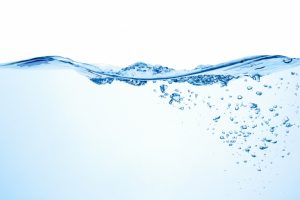If you’ve ever heard the term “hard water” and not fully understood it, this article is for you. If you’ve encountered plumbing problems and wondered if something about your water could be to blame, we’ve got the information you need. And even if you’ve never worried about hard water, you might find that you’ve been dealing with this issue without realizing it. Let’s dive in!
Minerals
The key difference between ordinary water and hard water is the mineral content. All water contains some trace amounts of minerals. Hard water simply contains minerals in larger concentrations. But how do the minerals get there?
Water is a spectacular solvent. This means that it dissolves a tiny bit of anything it flows through, and it carries those dissolved bits along with it. Of course, eventually, it will release those tiny bits somewhere. Imagine a stalactite forming: water drips, and as it evaporates away, it leaves behind any minerals it contains, until eventually, those mineral particles build up into something like a stone icicle!
The most common of the minerals found in hard water are calcium, magnesium, and iron. You might notice that you can purchase these things in the vitamins and supplements aisle of your local pharmacy. They’re not bad for you, and drinking the water won’t cause you any harm. But they can cause other problems.
Plumbing Problems
You certainly don’t want any stalactites forming inside your home’s plumbing! What actually happens is quite similar, though. It’s called mineral scaling. Trace amounts of those excess minerals are left behind in thin layers everywhere that water passes through. Over time, those layers build up, getting thicker and thicker.
This will narrow water pipes and decrease the water pressure that gets to your fixtures. It can narrow drain pipes and cause them to be much more easily clogged. And it can cause mayhem in appliances that use water. One of the biggest concerns is the water heater. Mineral buildup there can affect temperature and pressure, and even do damage to heating elements.
Washing Problems
The minerals in hard water also have an odd and frustrating effect: they make it so that soap won’t lather as effectively! You’ll end up using more soap, and it won’t dissolve as well. This further adds to the problem in your drain pipes, but it’s not just that. It can build up as residue on laundry and dishes, skin and hair, leaving everything dull and not quite clean.
Hard water can also cause skin, nails, and hair to become dry and brittle. If you feel like you can never get enough conditioner or moisturizer, even if you didn’t realize you had a hard water problem, this could be the cause.
Hard Water Prevention
If you suspect that hard water is a concern in your home, you don’t have to live with it. There are simple solutions! A plumber can flush your water heater to rinse away mineral buildup, and clean drains to stop clogs. They can also install a water softening system which attracts mineral molecules and traps them before they pass through your home’s plumbing. If you’d like to learn more, we’d love to tell you all about your options for water softening service in Cumming, GA.
To speak with a member of our team, contact DC Cheek Heating, Cooling & Plumbing today. Fixed, At the Speed of Life!




